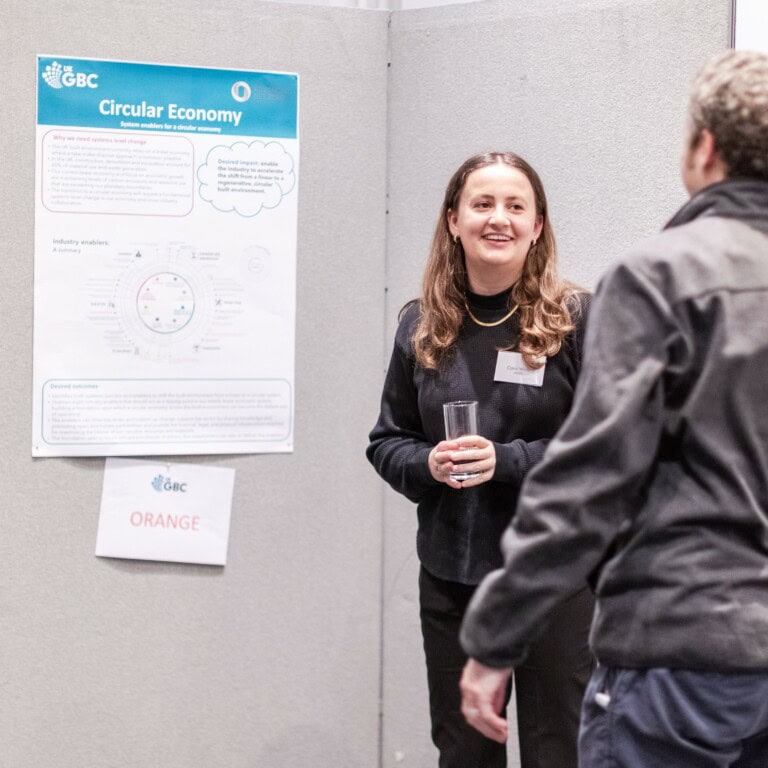Circular economy needs more entrepreneurs

The circular economy is finally gaining traction in the UK. Whilst coronavirus is rightly the focus of attention at the moment, it is clear that, over the last year, the climate and ecological crises have become a motivating force which have entered the public consciousness. As a staunch believer in circular solutions, and as the manager of a business operating to circular principles, I welcome this increased sense of urgency and focus on achieving circularity.
However, while public opinion may have shifted, on a practical level I see little progress in projects and, too many times, circularity falls at the first hurdle and is deflected by the weakest excuses and feeblest of efforts. This raises the question, if so many people are proclaiming the benefits of the circular economy, why is it seemingly so difficult to achieve?
In the simplest analysis it is because we lack people who want to “DO”!
Big developments are often managed by big contractors – huge behemoths with multiple tiers and strict hierarchies, vertically and between departments. In too many cases, their managers aren’t people who “DO”, they are people who find other people to do the doing. All too often, they keep their heads down, they don’t take risks, they do the job the way they are conventionally expected to and God forbid they cross interdepartmental lines and interfere with someone else’s sphere of influence. Worse still, many sustainability managers are not even tasked with managing a Company’s sustainability activities, but instead with managing their employer’s compliance with their customers sustainability expectations.
I chose my words carefully. They “manage compliance”, they do not significantly affect their company’s sustainability credentials but ensure that the information and data allow the right boxes to be ticked and forms filled out to score well. This is not just intended to be a criticism of them, as that is the role they are employed to fulfil, so the blame lies higher as well.
Upon reflection, it seems to me that the Circular Economy is at a stage where what it desperately needs is entrepreneurs. We are in uncharted territory, often trying to do things that have not been done before. Solutions are not off the peg and will require adaptation and flexibility to achieve. Anything is possible – you just have to want it enough. You have to be creative. You have to think for yourself and use others’ experience to develop your own.
I am talking about entrepreneurial thinking not about people having to start their own businesses – although I am sure that will follow.
So, what are the key things for a successful entrepreneur?
I work on an industrial estate that did not exist 40 years ago and whose top 3 companies didn’t exist either. They are now 3 top companies in their fields. We have the largest fabricator, the largest steel tube stockholder and the largest independent pet food company in the UK and I have grown up in my working life alongside the people who made these companies succeed. So, what is the key ingredient?
For me it is really basic: THEY DO NOT ACCEPT AN ANSWER THEY DO NOT LIKE.
They know what they want, even if they do not know how to get it, and they are driven to getting it. If people or circumstances stand in their way, they do not shrug their shoulders and look for compromise, they just refuse to accept it. They stick to their guns, they make things happen directly with their own efforts, they innovate, they take risks and so often get a better outcome than anyone else would have done.
To me, this is the entrepreneurial spirit we need in the circular construction world whilst it is in its infancy. We are breaking the moulds and changing normality. This will make people uncomfortable and hence they will resist, they will strive to push the world back into its “normal” boundaries. They will give answers you should not like. DO NOT ACCEPT THEM.
By adopting this approach it will be amazing what we can achieve. Unprecedented times call for unprecedented action, and entrepreneurial thinkers are key in driving the circular economy forward, transforming ideas into reality.
Related
What are the environmental impacts of construction materials? An introduction to Embodied Ecological Impacts

What does it mean to be 100% circular? Metrics, Benchmarks and Indicators for the Circular Economy

Embracing Circular Economy Design principles and interconnected enablers for Sustainability

Using the tools we have to build a circular economy


